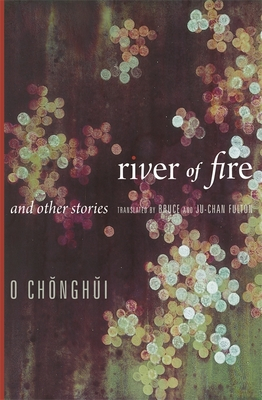Synopsis
O Chonghui is an immensely accomplished author, having won both the Yi Sang and Tongin awards, Korea's most prestigious prizes for fiction. Translations of her works into Japanese, English, French, and other languages have earned her international acclaim, generating comparisons with Joyce Carol Oates, Alice Munro, and Virginia Woolf. O Chonghui crafts historically-rooted yet timeless tales imagining core human experiences from a female point of view. Together with Pak Wanso (Park Wan-suh), she formed a powerful challenge to the conservative literary establishment in Korea, becoming one of the most astute observers of its society and the place of tradition within it.
These nine stories range from O's first published work in 1968 to one of her last publications in 1994. Her early stories are compact, often chilling accounts of family dysfunction, reflecting the decline of traditional, agrarian economics and the rise of urban, industrial living. Later stories are more expansive, weaving eloquent, occasionally wistful reflections on lost love and tradition together with provocative explorations of sexuality and gender. O makes use of flashbacks, interior monologues, and stream-of-consciousness in her narratives, developing themes of abandonment and loneliness in a carefully cultivated, dispassionate tone. Her nameless narrators stand in for the average individual, struggling to cope with emotional rootlessness and a yearning for permanence in family and society. Arguably the first female Korean fiction writer to follow Virginia Woolf's dictum to do away with the egoless, self-sacrificing "angel in the house," O Chonghui is a crucial figure in the history of modern Korean literature, on par with Kim Sowol, Hwang Sunwon, and Yi T'aejun.
These nine stories range from O's first published work in 1968 to one of her last publications in 1994. Her early stories are compact, often chilling accounts of family dysfunction, reflecting the decline of traditional, agrarian economics and the rise of urban, industrial living. Later stories are more expansive, weaving eloquent, occasionally wistful reflections on lost love and tradition together with provocative explorations of sexuality and gender. O makes use of flashbacks, interior monologues, and stream-of-consciousness in her narratives, developing themes of abandonment and loneliness in a carefully cultivated, dispassionate tone. Her nameless narrators stand in for the average individual, struggling to cope with emotional rootlessness and a yearning for permanence in family and society. Arguably the first female Korean fiction writer to follow Virginia Woolf's dictum to do away with the egoless, self-sacrificing "angel in the house," O Chonghui is a crucial figure in the history of modern Korean literature, on par with Kim Sowol, Hwang Sunwon, and Yi T'aejun.
Moyenne
-
0 vote
-
1 édition pour ce livre
2012 Editions Columbia University Press
Traduit par Bruce Fulton, Ju-Chan Fulton
232 pages
ISBN : 9780231160667
Qui a lu ce livre ?
Aucun membre n'a lu ce livre
Aucun membre ne lit ce livre
1 membre veut lire ce livre
Aucun membre ne possède ce livre
chronique de blog
Aucune chronique de blog pour le moment.
En vous inscrivant à Livraddict, vous pourrez partager vos chroniques de blog !



Pour poster un message, il faut être inscrit sur Livraddict
Aucun commentaire pour le moment.